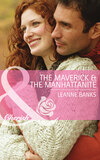Kitabı oku: «Marooned With The Maverick», sayfa 3
A few minutes later, they were out in the kitchen again, deciding what to take with them when they left.
She didn’t tell him so, but he looked sexy even in overalls. He’d used the razor she’d given him and his dark stubble was gone, his hair still wet, but minus the dried mud from the flood.
Before they left, they filled a couple of gallon-size plastic containers with water. She stuffed a backpack with a few personal items. Her mom had a key to Willa’s house in town and she took that, since hers was lost somewhere in her mud-filled car. She also grabbed a leash and a plastic container of food for Buster. She would have grabbed her dad’s first aid kit, but Collin said he had one in his pickup.
“You want to wade out to your car?” Collin asked her. “See if maybe we can find your purse or your keys?”
It was way out there in the middle of that muddy field. And it didn’t look promising to her. “We just got dry boots,” she reminded him. “Let it go.”
Collin didn’t argue. She figured he was probably anxious to get to the Triple T.
They locked up the house again and headed for his truck, which waited at the top of the road where he’d left it. Buster hopped in the back and they climbed in the cab.
His cell was stuck in one of the cup holders. He tried it. “Still no signal.”
Willa hooked her seat belt. He started the engine, pulled a U-turn and off they went.
It took them over an hour to get to the Triple T. The roads were washed out in several places and they had to find a way around the trouble spots. There was soggy, broken stuff strewn randomly wherever the water had risen, not to mention swamped, abandoned vehicles. Willa tried to take heart that they were all only things.
Collin played the truck’s radio for news. Roads and bridges were out everywhere. Any number of small towns on the western side of the state from Butte north had sustained serious damage. A third of the state had been designated a disaster area and there were constant warnings—about staying off the roads as much as possible, about exercising caution in flooded buildings, about the danger of snakes and the hazards of rats. About steering clear of downed power lines.
At the Triple T, all the buildings were above the waterline and undamaged, but there would still be one heck of a cleanup to deal with. The hands who’d been taking care of the place were there and safe. Willa told them how to get into her parents’ house to get fresh water for the next day or so, until they could disinfect the wells. They said they would check the stock for her as soon as they’d dealt with the animals on the Triple T.
Once Collin seemed satisfied that the hands had things under control, he said, “We should get going, go on into town.”
She caught his arm before they got in the cab.
He stopped and turned to look at her. “Yeah?” His skin was so warm under her hand. Smooth flesh, hard muscles beneath. She felt suddenly shy with him and jerked her hand away. He frowned. “What’s the matter?”
“I, well, I was just thinking that I’ll bet you really want to go back up the mountain to check on things at your place. You could just drop me off when we get to Falls Street and I can hitch a ride in.”
He stuck his fists into the front pockets of her dad’s overalls and tipped his head to the side. “What the hell, Willa? I’m not leaving you alone on the street.”
His words warmed her. But still. She really did need to stop taking advantage of his kindness to her.
Kindness.
Incredible. She’d been so busy judging him as a heartless, undisciplined sex maniac for all these years, she’d never had a clue what a softy he really was. She shook her head. “Oh, come on now. It’s Rust Creek Falls. We both know I’ll be perfectly safe.”
“We don’t know what’s going on since last night. And I don’t want you wandering around alone.”
“Collin, I would hardly wander. And I know everyone in town, so I won’t by any stretch of the imagination be alone.”
“I’m coming with you. I want to be with you when you check on your house.” He said the words in a cautious tone. They both knew where her house was: directly in the path of the water. She was already resigned to the fact that it had to be flooded and was hoping that at least some of her clothing and furniture might be salvageable.
“Honestly, I can handle it. I was pretty shell-shocked yesterday, I know. But I’m over that. I’m ready to face whatever comes. You don’t have to worry about me.”
He was scowling now. “Why are you trying to get rid of me?”
She fell back a step. “But I’m not. I just thought …”
He caught her arm with his calloused hand. It felt so good, his touch. And his grip was so strong. “What?” he demanded. “You thought what?”
She looked up at him, at his smoldering dark eyes and those lips that seemed like they were made for kissing a woman and she wondered what he would do if she kissed him. The idea made her feel both embarrassed and giddy. She almost giggled.
“Willa,” he demanded. “What is going on with you all of a sudden?”
Now she was thinking about earlier that morning. About waking up with her hand where it shouldn’t have been—about how he’d been turned on.
Get real, Willa. Just because he became aroused didn’t mean he was dying to have sex with her in particular. It was simple biology, and she needed to remember that.
And if he wanted to keep on being kind to her, well, maybe she’d just let him. Maybe she’d just go right on taking advantage of Collin Traub and enjoying every minute of it. “Nothing is ‘going on’ with me. I just wanted to make sure I wasn’t taking advantage of you.”
“You’re not.”
“So … you don’t mind going into town, then?”
“It’s not about minding. It’s what I planned to do. People will need help. They’ll need every able-bodied man.”
“And woman,” she reminded him.
“Right.” He had the good sense to agree.
She pressed her lips together to keep from grinning up at him like some addled fool and said, “Well, fair enough, then. I was just, um, checking.”
He seemed to realize suddenly that he was gripping her arm—and let go. “Checking.” Now he looked suspicious.
She put on her most innocent expression. “Uh-huh. Nothing wrong with checking, making sure you’re okay with what’s going on.”
“If I’m not okay, you’ll know it.”
“Well, then, I’ll stop checking.”
“Good. Can we go now?”
She had that silly urge to grin again. Must be the stress of all she’d been through since yesterday. Yeah. Right. That must be it.
The trip into Rust Creek Falls was as booby-trapped with obstacles as the ride to the Triple T had been.
There was the smell of smoke in the air. It wasn’t just from wood fires in stoves and fireplaces. They heard the sirens, saw the roiling smoke in the distance. On the south side of town, some homes had caught fire. Willa prayed her house wasn’t one of them—and then she put her house out of her mind and prayed that no lives were endangered by the fires.
Other travelers were on the road by then, most of whom they recognized. Everyone seemed to have somewhere important to go. People waved and honked, but nobody pulled over to talk about what they’d been through or exchange information about the disaster. Collin had the radio on. All the way there, they listened to advice on how to deal with the aftermath of the Great Independence Day Flood.
When they finally got to Falls Street on the southeastern edge of town, they had to circle around and take other roads farther east and then work their way back in. It was nothing but mud, pools of water, swamped, abandoned vehicles and way too much debris south of the creek. The buildings they saw before they turned east were still standing, but bore the telltale signs of water damage within.
Eventually, they reached Sawmill Street and turned west again. The water level was way down from flood stage and the bridge appeared intact. Collin pulled the pickup to the shoulder before they crossed it. They both got out to have a look, to make sure that crossing would be safe. Buster jumped out to follow them.
But then a couple of pickups came rolling across from the town side. Behind the wheel of the second truck was a rancher they both recognized, Hank Garmond. Hank owned a nice little spread at the southwestern edge of the valley.
He pulled to a stop. “Willa. Collin. I see you’re both in one piece and still breathing. Could be worse, eh? I’m headin’ back to my place. We still got a house, but we lost the barn and sheds. Haven’t started counting cattle yet. I just stopped in at Crawford’s to try and get a few supplies to tide us over.” Crawford’s General Store, on North Main, was a town landmark. The store sold everything from basic foodstuffs to farm supplies, hardware and clothing. “Shelves are already lookin’ pretty bare in there.”
Collin asked, “How bad is it?”
“In town? Power’s out, and all the phones. North of the creek is okay, from what I heard. No flooding, the water supply unaffected. South is not lookin’ good. Commercial Street Bridge is washed out. There’s damage to the Main Street Bridge. People are bypassing it. We still got this bridge though.” He pointed a thumb back over his shoulder. “Praise the Lord for small favors.” Very small favors, Willa couldn’t help thinking. True, it was pretty much what she and Collin had thought it would be, but somehow, to hear Hank confirm their suspicions made it all the more horribly real. “And then there’s what happened to Hunter McGee.” Hunter McGee was the mayor.
“What?” Willa demanded.
“Tree fell on that old SUV of his. So happened he was in the SUV at the time.”
Willa respected Mayor McGee. He was a born leader, a real booster of education and had planned and promoted several school-related fund-raising events. “My Lord,” she cried. “Was he hurt?”
“The tree fell on the hood. Not a scratch on him.” Hank resettled his hat on his head and Willa felt relief. But then Hank added, “Must have scared the you-know-what right out of him. He had a heart attack.”
Willa put her hand over her mouth. “Oh, no …”
“Oh, yeah. It was over real quick for Mayor McGee.”
“Over?” Willa’s heart sank. “You—you mean he’s …?”
Hank nodded. An SUV and another pickup came across the bridge. The occupants waved as they drove by. Hank said somberly, “They took him to Emmet’s house. Emmet pronounced him DOA.” Emmet dePaulo, a nurse-practitioner, ran the town clinic. “Clinic’s flooded, in case you were wondering.”
Willa and Collin exchanged grim glances. They weren’t surprised. The clinic was south of Main. “Emmet and a couple of his neighbors waded in there and saved what equipment and supplies they could first thing this morning. Luckily, Emmet had a lot of his medical stuff stored on the second floor and the water didn’t make it that high. He’s set up an emergency clinic at his house, for now.”
“They got the volunteer fire guys out on search and rescue?” Collin asked.
Hank shrugged. “Can’t say. I ain’t heard of anybody dead, hurt bad or stranded …’ceptin’ Mayor McGee, I mean. Rest his soul. But I did hear that some county trucks brought in salvage-and-rescue equipment and sandbags yesterday before the levee broke. This morning, the town council put together an emergency crew to patch up the places where the water got through. So that’s taken care of for now. And you can just have a look at the creek. Water level’s back to normal range.”
Collin gave a humorless chuckle. “Yeah, one good thing about breaks in the levee. They tend to bring the water level way down.”
“That they do,” Hank concurred. “Plus, there’s no rain in the forecast for at least the next week. So we’re unlikely to have a repeat of what happened yesterday—oh, and the town council called a meeting at noon in the town hall to talk cleanup and such. Wish I could be there, but I got way too much cleanup of my own out at my place and I need to get after it. Bought the bleach I needed, at least. I can disinfect my well.” Hank tipped his hat.
“You stay safe and take it slow on the road, Hank,” Collin said.
“Will do. You keep the faith, now.” The rancher rolled on by.
Collin put his arm around her. “You’re lookin’ kind of stricken, Willa.”
She leaned into him, because she could. She needed someone to lean on at that moment. And Collin was so solid. So warm. So very much alive. “I’d been letting myself hope that at least no one had died—and I really liked Mayor McGee.”
“I hear you. Hunter was a good man and this town could sure use him about now.” He pulled her a little closer in the shelter of his arm and turned them both back to the pickup, Buster at their heels. The dog jumped in back again and they got in the cab.
As they drove across the bridge, Willa tried not to dread what might be waiting for them on the other side.
Chapter Four
It didn’t look so awfully bad, Willa told herself as they drove along Sawmill Street. In fact, there on the northern edge of town, things seemed almost normal. Willa spotted a couple of downed trees and some flattened fences, but nothing like the devastation they’d witnessed coming in.
When they turned onto Main Street going south, they saw that the Crawford store parking lot was packed, people going in—and coming out mostly empty-handed. She supposed she shouldn’t be all that surprised. It wouldn’t take long to clear out the shelves of emergency supplies if everyone in town and most of the valley’s ranchers showed up all at once and grabbed whatever they could fit in a cart.
The Community Church had its doors wide open. People sat on the steps there or stood out under the trees in front. Most of them looked confused. And lost.
“Shouldn’t the Red Cross be showing up any minute?” she asked hopefully. “And what about FEMA and the National Guard?”
Collin grunted. “With a lot of the state in this condition, the phones out and the roads blocked, we’ll be real lucky if a few supply trucks get to us in the next day or two.” And then he swore low. “Isn’t that the mayor’s SUV?” The old brown 4×4 was half in, half out of the town hall parking lot. It had definitely come out the loser in the encounter with the downed elm tree. The tree lay square across what was left of the hood. The driver’s door gaped open. A couple of boys in their early teens were peering in the windows.
“That’s just too sad,” Willa said low. “You’d think they’d want it off the street.”
“Damn right.” Collin muttered. “A sight like that is not encouraging.” He hit the brake—and then swung a U-turn in front of the library, pulling in at the curb.
“Collin!” Willa cried, surprised. “What in the …?”
He shouted out the window at the two boys. “Hey, you two. Get over here.”
Both boys froze. They wore guilty expressions. But then they put on their best tough-guy scowls and sauntered to Collin’s side of the truck. They were the older brothers of a couple of Willa’s former students and when they spotted her in the passenger seat, they dropped some of the attitude and mumbled in unison, “‘Lo, Ms. Christensen.”
She gave them both a slow nod.
One of them raked his shaggy hair off his forehead and met Collin’s eyes. “Yeah?”
As he’d already done several times in the past eighteen hours or so, Collin surprised her. He knew their names. “Jesse. Franklin. Show a little respect, huh?”
Jesse, who was fourteen if Willa remembered correctly, cleared his throat. “We are, Mr. Traub.” Mr. Traub. So strange. To hear anybody call the youngest, wildest Traub mister. But then again, well, the Traubs were pillars of the Rust Creek Falls community. Some of that probably rubbed off, even on the family bad boy—especially to a couple of impressionable teenagers.
Franklin, who was thirteen, added, “We were just, you know, checkin’ things out.”
Collin leaned out the window and suggested in a just-between-us-men kind of voice, “You two could make yourselves useful, do this town a real big favor …”
The two boys perked up considerably. “Well, yeah. Sure,” said Jesse.
“How?” asked Franklin.
“Head on up to the garage. See if Clovis has a tow truck he can spare.” Clovis Hart had owned and run the garage and gas station at Sawmill and North Buckskin for as long as Willa could remember. “Tell him the mayor’s SUV is still sitting in the middle of Main Street with a tree trunk buried in its hood and lots of folks would appreciate it if Clovis could tow it away.”
The boys shared a wide-eyed look. And then Franklin said, “Yeah. We could do that.”
“You want me to take you up there?”
“Naw,” said Jesse, puffing out his skinny chest. “We can handle it ourselves.”
“Good enough, then. Thanks, boys—and tell Clovis he probably ought to bring a chain saw for that tree.”
“We will.” The two took off up Main at a run.
“That was well done,” Willa said, and didn’t even bother to try and hide the admiration in her voice.
Collin grunted. “Maybe, but do you think they’ll make it happen?”
“You know, I kind of do. They’re good kids. And this is a way for them to help. And you know Clovis.”
“Yes, I do. Clovis Hart respected Hunter McGee and he won’t like it that the car Hunter died in is sitting on Main with the hood smashed in for everyone to stare and point at.”
She glanced toward the dashboard clock. It was 10:45 a.m. “So what do we do now?”
“I was thinking we could go and see how your house made out….”
She glanced over her shoulder, out the back window, past a happily panting Buster, at the Main Street Bridge. Someone had put a row of orange traffic cones in front of it to warn people off trying to use it. And one of her brother’s deputies was standing, arms folded, in front of the pedestrian walk that spanned one side. “It doesn’t look like they’re letting folks cross the bridge.”
Connor glanced over his shoulder, too. “We could try heading back to the Sawmill Street Bridge, then going on foot along the top of the levee until we get to your street.”
“That could be dangerous … I mean, with the breaks in the levee and all. We would have to go carefully, and we don’t know what we’ll find if we manage to get to my house. It could take hours and we would miss the noon meeting Hank mentioned. I do think we should go to that.”
Collin faced front again, his big shoulders slumping, and stared broodingly out the windshield back the way they had come. “You know who’ll be running that meeting now Hunter’s gone, don’t you?”
She did. “Nathan Crawford.” Nathan was in his early thirties, a member of the town council. Everyone expected him to be mayor himself someday. He and Collin had never liked each other. It was as if the two had been born to be enemies. Nathan was as handsome and dynamic as Collin was brooding and magnetic. Collin had always been a rebel and Nathan considered himself a community leader.
Rumor had it that five or six years back, Nathan’s girlfriend, Anita, had gone out on him—with Collin. Word was Anita had told Collin that she and Nathan were through. But apparently, she’d failed to inform Nathan of that fact. There’d been a fight, a nasty one, between the two men. Some claimed Collin had won, others insisted Nathan had come out the victor. After that, the two had hated each other more than ever.
Plus, there was the old rivalry between their two families. Nathan was a Crawford to the core. The Crawfords not only owned the general store, they were also as influential in the community as the Traubs. And for as long as anyone could remember, Crawfords and Traubs had been at odds. Willa didn’t really know the origin of the feud, but it seemed to be bred in the bone now between the town’s two most important families. Traubs didn’t think much of Crawfords. And the Crawfords returned the favor.
She spoke gently, but with firmness. “I really think it’s important that everyone who can possibly be there attends that meeting.”
He put his arm along the back of the seat and touched her shoulder, a gentle brush of a touch. She felt that touch acutely. His dark eyes sought hers—and held them. “So you want to go to the meeting first and then decide what to do about getting to your place?”
She smiled at him. “I do. Yes.” Right then, a Rust Creek Garage tow truck came rumbling toward them down the street.
“I’ve got a chain saw in my toolbox in the back.” Collin got out to give Clovis a hand.
At ten past two that afternoon the town hall meeting was still going on.
Collin sat next to Willa and wished he was anywhere but there. He was getting hungry, for one thing. And he figured the rest of the crowd had to be hungry, too.
The big multipurpose meeting room was packed. They had a generator for the lights, but there was no air-conditioning, never had been in the town hall. As a rule, it didn’t get that hot in Rust Creek Falls. But with all the bodies packed in that room, it was hot now.
Tired, frightened, stressed-out townsfolk had taken every chair. More people stood at the back or along the side walls. There were children, too. People didn’t want to let their kids out of their sight at a time like this. And kids got restless when forced to sit or stand in one place for too long.
Babies were wailing and small voices kept asking, “Daddy, when can we go?” and “Mommy, is this over yet?”
There were a lot of big talkers in town and every one of them was insisting on being heard. Plus, that jerk Nathan sat up there on the hall stage with the other useless members of the council and kept banging the mayor’s big hand-carved oak gavel for order.
All right, it was true. A lot of people thought the world of Nathan Crawford. And maybe, if Collin were being fair about it, he’d admit that Nathan had a few good qualities. However, when it came to most Crawfords, and Nathan in particular, Collin just plain didn’t feel like being fair.
Nathan had the council in his pocket, naturally. They all looked at him like he was wearing a damn halo or something, like he was the one sent down from heaven to single-handedly fix everything that had gone so completely wrong since the day before.
“Everyone, your attention!” Nathan boomed in that smooth baritone that made people think he knew what he was talking about. “We all have to work together here. As I’ve said before, though phone, internet and TV are temporarily out of commission, we have the radio system at the sheriff’s office and we are in communication with DES—that is the state office of Disaster and Emergency Services. They are well aware of what is going on in Rust Creek Falls and the valley. And, unfortunately, in far too many other communities in western Montana. The good news, however, is that everything is under control and moving along.”
Somebody in the crowd made a rude noise.
Nathan banged the mayor’s gavel some more. “If we could all just be patient for a little bit longer, we will get these teams firmed up, so we can all get going on the cleanup right away.”
Collin knew he should keep his mouth shut. His plan had been to get through the meeting, help Willa deal with the probable ruin of her home and then pitch in wherever he was needed. But Nathan and the council had their priorities turned around. And while there were plenty of people willing to go on and on about the difficulty of the situation and how much they wanted to help, nobody else seemed ready to tell the council they were putting the cart before the horse.
He got to his feet. Beside him, Willa startled and looked up at him, wide-eyed. She did amuse him, the way she always looked so worried about what he might do next. He sent her a glance that he meant to be reassuring. Her eyes only got wider. So much for soothing her. He faced front and waded in.
“I’m sorry. Nobody’s speaking up about the real issue here and so I suppose I’m going to have to be the one. Nathan, cleanup is not the issue yet,” he said good and loud. “First, we need to get teams into the flooded areas and see who needs help there. We need search and rescue and we needed it hours ago.”
A chorus of agreement rose from the crowd. Apparently, others thought there should be a rescue effort. It was only that no one had been willing to stand up and say it out loud.
Nathan banged his gavel. He looked at Collin the way he always did: as though he’d just crawled out from under a rock. “Order. Please, everyone. I already explained. We have the volunteer firefighters out searching for trapped or injured survivors.”
“One team, you’re saying? With how many men on it?”
Nathan didn’t answer either question. Instead, he went right on with his argument. “Those men are trained for this and know what they’re doing. We don’t think it’s a big problem. No one has reported anyone missing.”
“And how’re you going to know if someone’s missing?” Collin demanded. “People can’t call. The phones are out. There can’t be more than a third of the people in the valley here at this meeting or hanging around Main Street. Where are the rest of them? Trying to clean up what’s theirs? Off to Livingston for the rodeo, or down in Thunder Canyon with the rest of my family? Or trapped on the upper floors of their houses, wondering why no one’s come looking for them?”
“But we are looking. And I honestly do not believe—”
Collin didn’t even let him get started. “And you didn’t answer my first question. How many men are out on search and rescue, Nathan?”
Others spoke up then. “Yeah! How many?” someone demanded.
“Not enough, that’s how many!” answered another.
Nathan’s face had gone a deep shade of red. “People, please. Order!”
Collin stuck his hands into the pockets of Wayne Christensen’s overalls and waited for Nathan to stop pounding that gavel. Once he did, Collin answered the question himself. “I’m guessing about nine. Nine men to cover the whole of this town and the valley. Have I got that right?”
“Nine strong, able men who are trained in effective search and rescue,” Nathan insisted, his face even redder than before.
Collin kept after him. “It doesn’t matter how good they are. Nine men are not enough. We need to put every able-bodied adult on the search until we’ve made a circuit of all the homes and ranches in town and in the valley. It shouldn’t take more than the rest of today and tomorrow, if we get a move on. After that, we can change our focus to salvage and cleanup.”
Down the row from him and Willa, one of the Crawford men called out, “Sit down and shut up, why don’t you, Traub? Let them that knows what they’re doing make the decisions here.”
“Yeah,” said another voice. “We don’t need the likes of you tellin’ us what to do first.”
And that was when Willa shot to her feet beside him. At first, Collin thought she would grab his arm and beg him to stay out of it.
But it turned out he’d misjudged her. “I feel I must add my voice to Collin’s,” she said in that prim schoolmarm way of hers that never failed to get him kind of hot. “We have no idea how many people might be trapped in their homes or their barns. There are bound to be collapsed buildings. People could be buried in the rubble, praying they’ll be rescued before it’s too late. We’ve already lost Mayor McGee.”
“Bless his soul,” said a woman’s voice.
“Amen,” said another.
Willa wasn’t finished. “Search and rescue is the first job. And we need to give it everything. We can’t afford to lose one more precious life in Rust Creek Falls or the valley.”
And Collin added his voice to hers. “We’ve got to save our people before we worry about our property.”
The room erupted in whistles and applause. People shouted, “By God, he’s right!” and “Search and rescue!” and “Collin’s said it!” and “Listen to the schoolteacher!”
By the time the clapping finally stopped, even Nathan had seen the writing on the wall. He did what he had to do and went along. “The council, as always, seeks to understand and take action according to the wishes of our citizens. We will call in the nine trained men and reassign them as team leaders.”
Willa leaned close and asked softly, “Call? The phones are out …”
He whispered back, “They’ll have handheld radios—walkie-talkies.”
“Oh. Right …”
Nathan was still talking. “For today and tomorrow—and as long as is needed—those nine leaders will head the teams in our search-and-rescue efforts. Volunteers, seek out a leader. Marjorie?”
Marjorie Hanke, the council member to Nathan’s right, stood, picked up a pointer and smacked it against the map of the county that hung behind the council table. The map had already been divided into sections for the proposed cleanup teams. “Team one, section one—and so on,” Marjorie announced. “We’ve been fortunate in that rubber boots, heavy rubber gloves and necessary tools have already been trucked in and will be provided to each of you. Please wear the boots and gloves at all times when searching in mud or standing water. Be on careful lookout, everyone, for vermin of all persuasions. Floods bring out the rats and displace the snakes. Thank you, Nathan.” With a nod, she set down the pointer and took her seat again.
Nathan wrapped it up. At last. “Getting around in the flood areas isn’t easy, but we are able to truck in supplies from Kalispell for those in need. The Ladies Auxiliary of the Community Church has set out a meal on the church lawn while we’ve been busy with our meeting here. If everyone will file outside in an orderly manner, Pastor Alderson will lead us in a prayer, after which we will share a late lunch. By then, your team leaders will have returned—and the search for missing survivors can commence.”
Ücretsiz ön izlemeyi tamamladınız.















